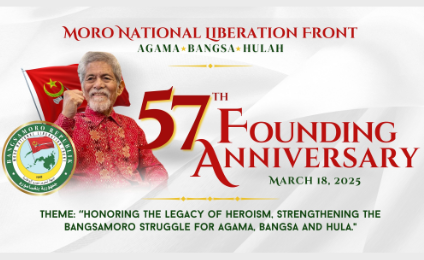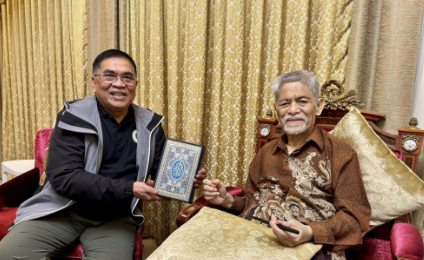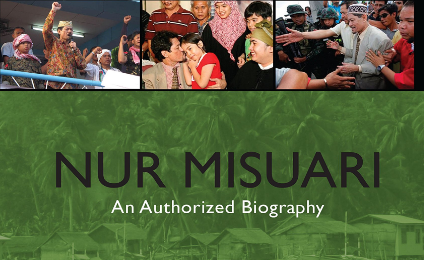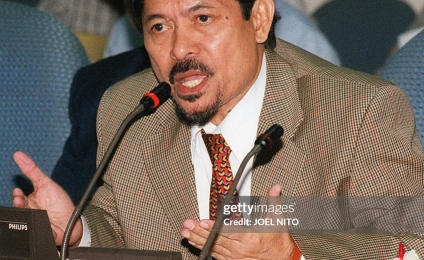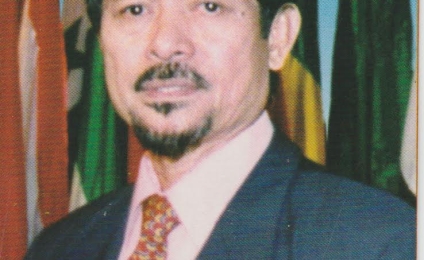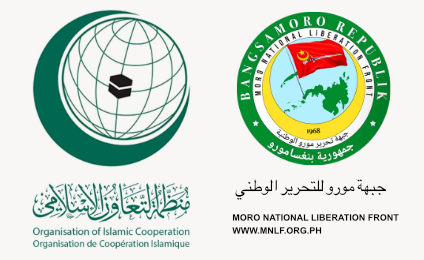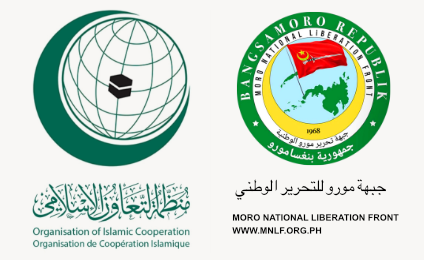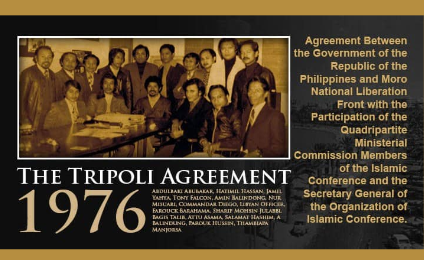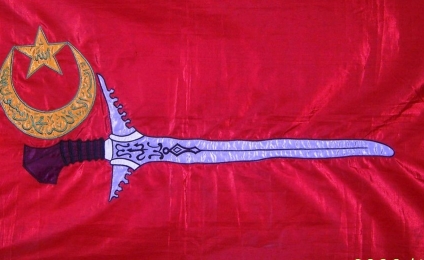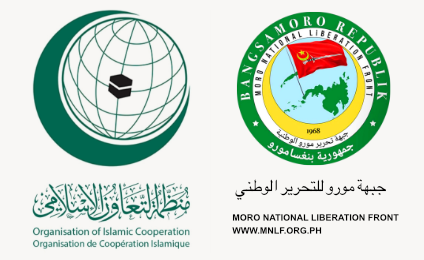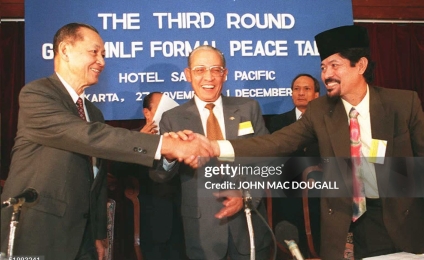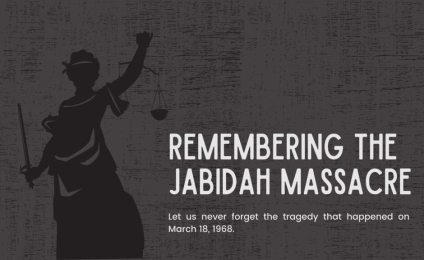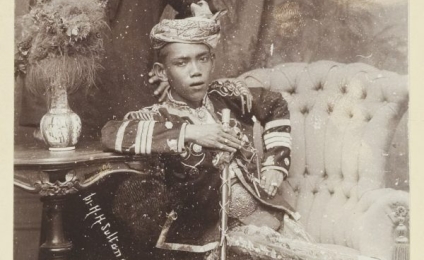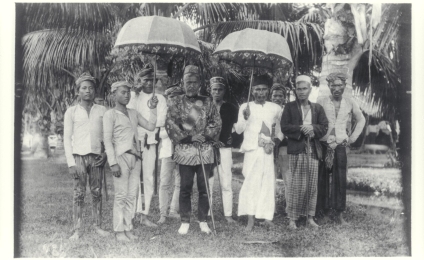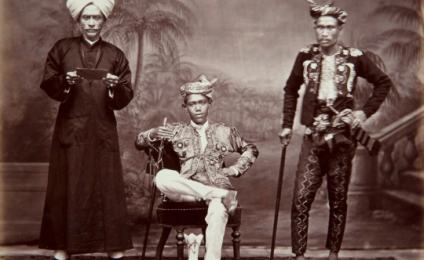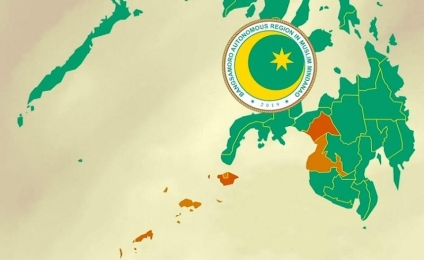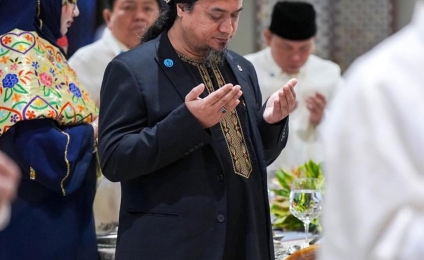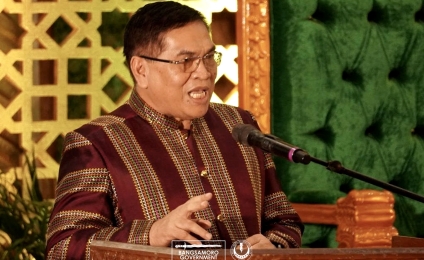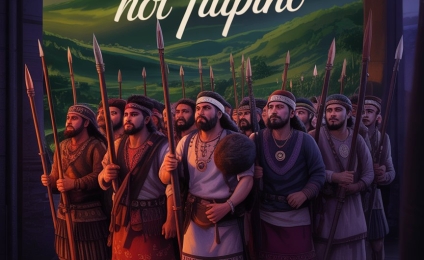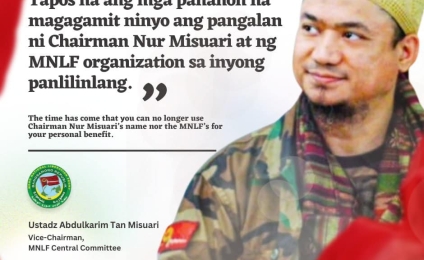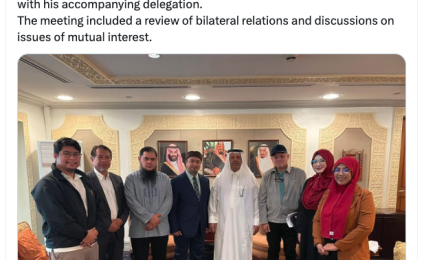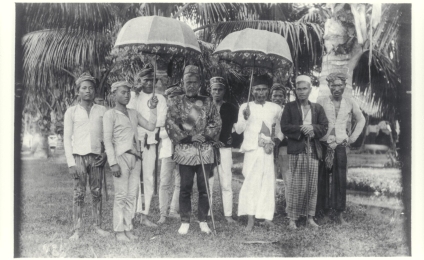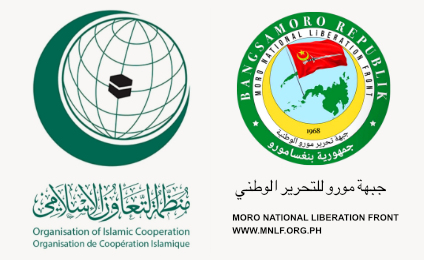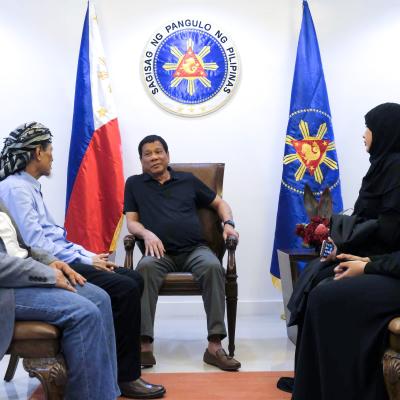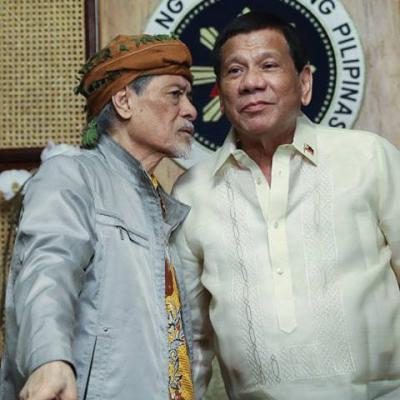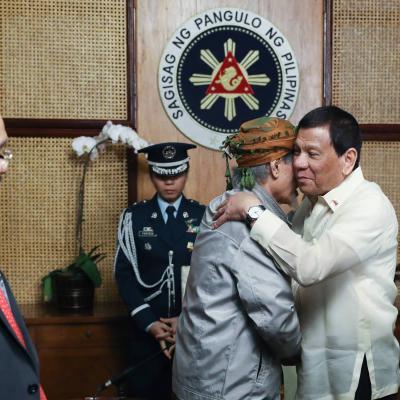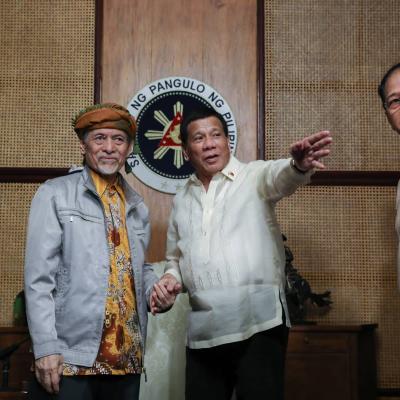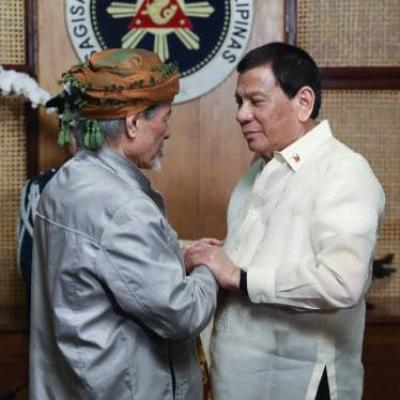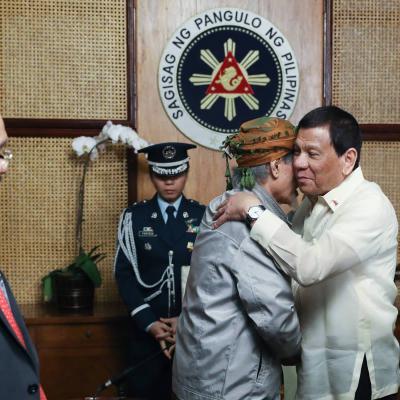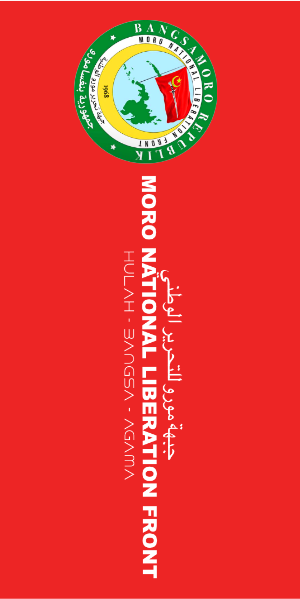Mr. Chairman, His Excellency Foreign Minister Yerzhan Kazykhanov,
His Excellency OIC Secretary-General Professor Ekmeleddin Ihsanoglu,
Their Royal Highnesses and Their Excellencies,
Brothers, sisters, and esteemed guests:
Assalamu Alaikum wa Rahmatullahi wa Barakatuhu!
(Note: Let me read this abridged and amended version of my prepared speech, which our brothers submitted yesterday, to save time and comply with the wishes of the Chair. Even so, I hope that the other text will also be accepted as an official document of this 38th session of the Conference of Foreign Ministers of the Organization of Islamic Cooperation. May Allah Ta’ala guide us and be pleased with us—Ameen.)
Mr. Chairman, I would like to begin by sincerely and profusely thanking our fraternal host, especially His Excellency President Nursultan Nazarbayev, for the warm welcome and generous hospitality extended to us upon our arrival and during our brief stay in this beautiful and progressive city of Astana, the alluring capital of the newly independent Republic of Kazakhstan.
What we see at every turn in Astana, which did not exist until the last decade and a half, attests to the popular truism that newly acquired freedom, combined with inspired, dedicated, and exemplary statesmanship, are the twin cornerstones and driving force behind the spectacular changes and transformation in every emerging society. Thus, the experiences and emergence of Astana are a great lesson for all of us and for the rest of mankind. To me, the city of Astana is a great wonder, a miracle, and a truly exemplary model worthy of genuine emulation.
Allow me also, Mr. Chairman, to join my brothers and sisters in this hall, who have come from across the four corners of the Islamic world, in congratulating you on your election as Chair of this 38th session of the OIC Conference of Foreign Ministers. This reflects the trust and confidence of your brothers and sisters in your vast experience and sense of purpose in serving the cause of the Islamic Ummah and future generations.
Surely, this augurs well for the success of our present undertaking and will give impetus to the fulfillment of the OIC’s Plan of Action, by the will of Allah.
Allow me also to join my brothers and sisters in this historic venue in praising and extolling our illustrious Secretary-General, His Excellency Professor Ekmeleddin Ihsanoglu, for the unprecedented success of his leadership of the OIC General Secretariat in advancing the cause and frontiers of the Islamic Ummah in every direction in this highly complex and troubled world.
At this juncture, permit me to recall that the admission of the MNLF as a permanent observer in the OIC since 1977, some 35 years ago, was due in no small measure to the blatant or culpable violation of the December 23, 1976 OIC-GRP-MNLF Tripoli Peace Treaty Agreement and its concomitant ceasefire agreement by the Philippine colonial government and its occupation forces stationed in the Bangsamoro national homeland.
This matter, Mr. Chairman, stemmed from the fact that Marcos arrogated to himself the sole power to unilaterally and hypocritically implement the Tripoli Agreement at our expense, when it was supposed to be a collective endeavor among the three parties to the negotiations. Marcos seized this opportunity to invent alibis and sinister pretexts to justify the resumption of wholesale war, mass extermination, and genocide that claimed tens of thousands more innocent Bangsamoro lives. Little did he expect, however, that these horrible misdeeds, his blatant treachery and betrayal, would haunt him and ultimately cause his and his government’s undoing.
Yes, his treachery and betrayal of the peace agreement, on the one hand, and the MNLF and/or the Bangsamoro people, on the other, contributed decisively to his regime’s ignominious downfall. They earned him and his dictatorial colonial government the condemnation of the OIC and the Islamic world. They also led to his subsequent conviction, after a protracted trial in absentia by an international tribunal of noted jurists in Antwerp, Belgium, for “committing heinous crimes against the oppressed and colonized Bangsamoro people and the rest of humanity.”
As regards the brazen hypocrisy of Marcos and the Philippine colonial government in deceptively entering into a peace process with the MNLF, with the usual active participation of the OIC, this was merely a subterfuge aimed at placating and neutralizing the OIC and its aggrieved member states over the widespread campaign of political and religious persecution, compounded by his war of mass and indiscriminate extermination against the hapless and defenseless Bangsamoro people.
Uppermost in their minds was how to prevent the powerful oil-rich Muslim countries from freezing diplomatic and commercial relations, and thus prevent them from using their most effective, peaceful, and legitimate means to redress Bangsamoro grievances and compel Marcos to halt his genocidal war. The imagined fear of oil and trade sanctions terrified Marcos and his entire government for obvious reasons. At the same time, it was also a clever stratagem by Marcos and his occupation forces to gain time to reassess, regroup, and augment their military capability and armed civilian forces, as a prelude to launching more widespread genocidal campaigns against the Bangsamoro people and the MNLF freedom fighters. This aimed to decimate the fast-dwindling Bangsamoro population.
Meanwhile, millions of terrified Bangsamoro citizens were uprooted from their homes and ancestral lands, and were forced against their will to seek refuge in foreign lands. Hundreds of thousands, if not millions, perished in the cataclysm of the colonial war of extermination, including its collateral damages and other evil consequences.
At any rate, the OIC voluntarily took up the Bangsamoro and MNLF case and decided to compromise the MNLF’s political demand for “self-determination, decolonization, and independence” from Philippine colonialism, which was barely 22 years old at the founding of the MNLF and the Bangsamoro Republik, and the launching of the Bangsamoro revolution in March 1968. The OIC did this, for better or worse, by proposing during its fifth ICFM session in July 1974 in Kuala Lumpur, Malaysia, a much-watered-down solution, widely believed to have been based on the idea of President Marcos.
This resulted in a series of OIC-GRP-MNLF peace talks that began in Jeddah, Saudi Arabia, in January 1975. Such was Marcos’ subtle and insidious way of influencing some influential Muslim leaders and the OIC to serve his country’s colonial interests. This compromised solution paved the way for massive “land grabbing and settlement activities” by organized and well-financed Filipino Christian settlers from Luzon and the Visayas, considered by the late Commonwealth President Manuel L. Quezon as the “ultimate solution to the Mindanao (or Bangsamoro) problem.” Behind this colonial scheme was Quezon’s obsession to perpetuate Philippine colonialism in the Bangsamoro homeland.
Sadly, this was all that the Islamic world, represented by the OIC, could possibly do under the prevailing post-World War II global situation, when several OIC member states had just emerged from the trauma of prolonged colonial rule themselves.
Nevertheless, the ensuing OIC-GRP-MNLF peace process, despite its initial failure, resulted in the signing of the historic December 23, 1976 Tripoli OIC-GRP-MNLF Peace Treaty Agreement, which mandated the establishment of Bangsamoro autonomy, embracing less than sixty percent of the Bangsamoro homeland (i.e., 13 specified provinces and all the 9 or 10 cities and villages therein). The creation of this autonomy was supposed to follow immediately after the signing of the peace treaty in Tripoli, Libya.
Fortunately, the colonial hypocrisy and subterfuge behind the decision to engage the MNLF and OIC in a peace process were exposed when, on the eve of the 8th OIC ICFM in Tripoli, Libya, the Philippine First Lady, Madam Imelda Romualdez Marcos, acting as her husband’s alter ego, erred in writing to Libyan leader Colonel Muammar Qaddafi, carelessly confessing in her message that “President Marcos and the Philippine government cannot grant autonomy to the MNLF and our Muslim brothers (i.e., the Bangsamoro people) at all.”
This official revelation, coming as it did from the highest level, exploded like a thunderbolt. In fact, this message was a reiteration of what she had told the Manila media earlier. When asked by a magazine why the President continued to delay the full implementation of the Tripoli Peace Treaty, she replied, “Why should we implement the Tripoli Agreement when we’ve already achieved everything we wanted from it!”
Perhaps feeling hurt and rejected by this outburst, the wise and courageous leadership of the 8th OIC ICFM found common cause and decided to respond through a unanimous resolution that granted the MNLF chairman’s application for full membership in the OIC halfway, by admitting the MNLF as a permanent observer. Sensing its inadequacy and realizing the incorrigible and continuing defiance of Philippine colonialism, as demonstrated by its relentless war against the MNLF and Bangsamoro people, the OIC subsequently upgraded the MNLF’s status during its ICFM session in Sanaa, Yemen, by formally recognizing the MNLF as “the sole legitimate representative” of the Bangsamoro (Muslim) people. The OIC had finally come to appreciate the Front’s steadfastness and resilience in defending and championing the cause of peace and freedom for the Bangsamoro people and their homeland.
Nevertheless, oblivious to this colonial subterfuge and hypocrisy, the MNLF leadership, in its unwavering quest for peace, suddenly executed a dramatic volte-face by deciding “to give peace another chance” in the face of mounting pressure to return to the negotiating table.
Accordingly, they agreed to accept a new OIC peace initiative by joining another round of peace talks with the Philippine government. However, this was only after President Marcos had been toppled by the very lady whose husband had died in a bloody assassination upon arriving from Taiwan at the Manila International Airport. The assassination plot was attributed to high officials in Malacañang Palace and was said to have been carried out by suspected agents of the Marcos government.
It should be noted that the widow, Mrs. Corazon C. Aquino, rose to power mainly due to the crucial initial support of the MNLF founding leader and Central Committee Chairman. In fulfillment of her promise, she flew to the island of Jolo to extend her sincere gratitude to the man who literally made her President. She was accompanied by Police General Fidel V. Ramos and Defense Secretary Juan Ponce Enrile, now President of the Philippine Senate.
It was barely a month before the February 7, 1986 snap presidential election, and the lady candidate was already on the verge of quitting the race due to the devastating results of a nationwide opinion survey conducted by her own campaign managers, which showed she was trailing far behind. She was set to lose the election by a landslide to the incumbent President Ferdinand E. Marcos, unless some unexpected event dramatically turned public opinion in her favor in the Bangsamoro homeland.
It was widely known that only the MNLF founding leader and Central Committee Chairman, Professor Nur P. Misuari, could do that. He alone commanded millions of MNLF members and sympathizers, backed by the powerful MNLF armed forces, who were regarded as the only ones capable of upsetting Marcos’ ambition. As the lady’s brother-in-law and head of mission, Mr. Butch Aquino, told the MNLF leader during their subsequent meeting in Madrid, Spain, “Only the MNLF armed forces are capable of protecting the ballot boxes, as they are the only ones who can fight against the Philippine armed forces to prevent them from tampering with the election returns in favor of Marcos!”
Everyone conceded that President Marcos had almost complete control over the decisive swing votes in the Bangsamoro homeland. Nonetheless, due to the support of the MNLF leader and the Bangsamoro people, Marcos was defeated in Mindanao and the rest of the Bangsamoro homeland, triggering a deep political crisis that ended with his overthrow and exile in Hawaii, where he died a lonely and disappointed man.
Unfortunately, the January 2nd peace treaty accord with her government, which sought to expand the territorial dimension of the December 1976 Tripoli Peace Agreement to include the whole Bangsamoro homeland, never saw the light of day. A powerful cardinal, entrusted by the lady president to help solve the Bangsamoro problem, simply sat on the matter until he passed away of illness and old age.
...and then a new president or administration came to power, bringing with it renewed hopes for peace and resolution in the Bangsamoro homeland. However, despite the initial optimism that accompanied each leadership change, the core issues and aspirations of the Bangsamoro people remained largely unaddressed.
Each succeeding government made various overtures and convened peace talks, often with the encouragement and mediation of the Organization of Islamic Cooperation (OIC) and other international partners. Yet, these efforts were frequently hampered by a lack of genuine political will, shifting government priorities, and persistent distrust between the parties. Promised reforms and autonomy arrangements were repeatedly delayed or diluted, leaving the Bangsamoro people frustrated and skeptical about the sincerity of the peace process.
Nevertheless, the Moro National Liberation Front (MNLF), guided by its commitment to the welfare and rights of the Bangsamoro people, continued to engage in dialogue and negotiation. The MNLF’s steadfastness, recognized by the OIC and the broader Islamic world, ensured that the Bangsamoro struggle remained on the international agenda.
Today, as we gather in this distinguished assembly, we are reminded that the pursuit of a just and lasting peace requires not only political agreements but also the genuine commitment of all stakeholders to address the historical injustices and aspirations of the Bangsamoro nation. We call upon the OIC and the international community to continue supporting the Bangsamoro people in their quest for self-determination, justice, and meaningful autonomy.
May Allah grant us wisdom, patience, and unity as we strive to achieve peace, justice, and dignity for the Bangsamoro people and for all oppressed peoples around the world.
Thank you, Mr. Chairman, esteemed colleagues, and honored guests.
Assalamu Alaikum wa Rahmatullahi wa Barakatuhu!1



 – Awarded for his role in promoting peace and dialogue in the Southern Philippines, particularly in the Mindanao conflict1_small.png)
